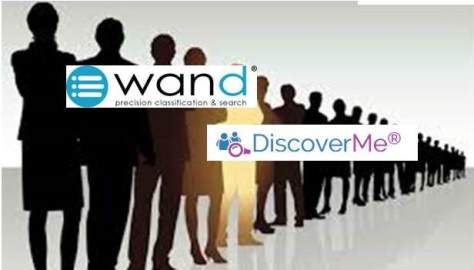 Taking care of the skills and capabilities of the individuals in your workforce can pay big dividends. Complete and accurate skills based employee profiles are the first step.
Taking care of the skills and capabilities of the individuals in your workforce can pay big dividends. Complete and accurate skills based employee profiles are the first step.
Digital transformation means integrating technology into business processes, including striving to automate rote tasks where possible. Digital transformation is a big buzzword, but in reality it has been taking place in companies for decades. Still, as technology capabilities grow, the digitization of enterprise functions accelerates as well.
In the rush to digitize, it’s critical that employees are not forgotten and left behind. Employees should part of a digital transformation and that starts with a skills based employee profile. Profiles are central to our digital lives. Everybody has profiles. Facebook, Instagram, Twitter, and if you are reading this article, you certainly have a LinkedIn profile as well. Profiles are comfortable, non-threatening, familiar, and require little training. A profile is a home base where you can share information about yourself and where people can come to learn more about you and to communicate with you. Information on your profile can be valuable to suggest content or resources in which an employee may be interested.
By providing the ability to have an internal company profile, organizations are including each employee as a part of, instead of just a consumer of, a digital transformation.
Digitization can be an opportunity to engage employees, develop skills, and maximize the ROI of a digital transformation. To succeed, companies need to have skills based profiles for each employee.
Adoption
Leading intranet research group Nielsen Nelson says it best: “When done well, even basic tools (such as skill-based employee directories) can be a key driver for user satisfaction and increased portal adoption.”
It’s critical to show employees how digital transformation is going to benefit them. Corporate intranets and enterprise search are a common target for digital transformation. Taking content that is stored in disparate locations (various cloud storage systems, desktops, shared drives, etc.) and making it available in a single place is a digitization step every company needs to take. Leading with employee profiles is an inclusive way to introduce people to your new digital environment.
According to Nielsen Nelson, “Personalization and social tools, once optional components of the corporate intranet, are now beginning to become standard offerings, an almost expected component of any full-featured site.”
Profiles are a great first step in employee onboarding. Not only will profiles help introduce a new hire to your company’s digital environment, they will also help managers get to know their new employee and everything that employee has to offer.
Bring People Together
Collaboration and communication tools are hot. Slack, Teams, Yammer, Skype, Xoom are just a few of the social technologies that are becoming pervasive in corporations. The goal of these tools is to break down walls and to reduce friction in employees working together.
Do you want your employees to just communicate with the people they know? How limiting! So, how does somebody know who they want to communicate with?
To gain the full benefit of social technologies, a complete and accurate skills profile for each employee is critical.
Imagine that an engineer in a 20,000 person company is working on how to appropriately stress test a new part. She runs into a road block. If her company has collected accurate skills profiles on everybody in the company, she can search for people who have expertise in “Stress Testing” and quickly open a slack channel with those experts where she can pose her question. She is likely interacting with experts in different offices and in different cities whom she has never met before. Wouldn’t it be powerful if this level of employee interaction were possible? With skills based employee profiles, it is.
It’s Personal
A digital transformation should transform and automate tasks that historically were completed by your workforce. While this adds significant efficiencies to an organization, it also creates concern among employees as the nature of jobs fundamentally change. It also means that digital skills required by employees to do these jobs is higher. Digital transformations shouldn’t leave people behind.
With accurate skills profiles, companies can include their workforce in the planning. Managers can see the skills that each employee has and identify training opportunities to make sure the team is going to be able to adapt to new changes brought on by a digital transformation. Lower value rote skills can be replaced by higher value skills that will continue to keep an employee relevant and engaged.
Expect a positive response when employees know that the company is going to help grow and expand the skills on their profile.
Engage your People
Wouldn’t you like to get 26% more revenue growth out of each employee? Increasing productivity and engagement simply by focusing on employee skills can get you there.
According to Gallup, “when teams learn and focus on their strengths every day, their productivity improves. This alone produces an additive effect of up to 8% higher revenue (growth) per employee.”
Also from Gallup, employees who use their strengths and are involved in things they like to do every day are “six times more likely to be engaged at work.” Engagement means a “willingness to go the extra mile for the company and its customers.” Companies with a culture of employee engagement can deliver up to 18% higher revenue (growth) per employee. This benefit doesn’t even factor in the employee retention benefits that engagement provides.
Developing a skills profile on each employee can help companies understand employees strengths and focus on leveraging and developing those strengths. Companies can explicitly catalog what employees actually like to do and manage towards those strengths and preferences. Putting people in a position where they have the greatest opportunity to succeed and to enjoy what they are doing results in a more productive and a more engaged workforce.
DiscoverMe
DiscoverMe, a new skills based employee profile and expert search application for SharePoint, is the best way to create an accurate, comprehensive skills profile for every employee in your company. DiscoverMe includes:
- Fully customizable employee skills profiles
- Expert search and advanced people finder
- Profile recommendations and endorsements
- Custom reports from DiscoverMe profile data
- Predefined skills lists for every industry and business function that can quickly be customized for your organization.
- Available for SharePoint 2013, 2016, and SharePoint Online
Employee skills profiles add a social engagement element and bring employees into a digital transformation. Employee profiles are critical for adoption, personalization, collaboration, stickiness, and employee engagement as companies continue to digitize. Simply put, prioritizing employees is a lever to deliver greater return on investment for your organization.
Learn more about DiscoverMe at www.discovermepro.com or sign-up to see a demonstration of how DiscoverMe skills profiles can be a part of your digital transformation at https://www.discovermepro.com/contact-us/
Source: LinkedIn Article by Mark Leher























